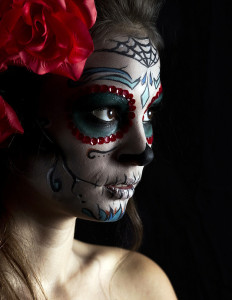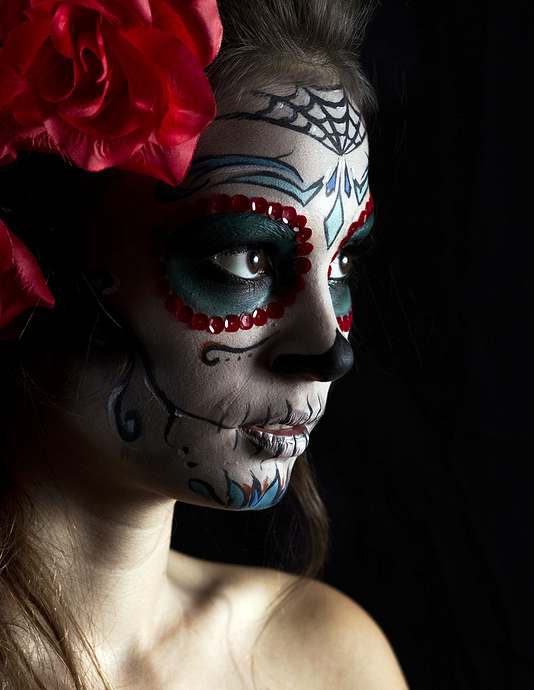
I recently read Lindsey Woo’s contribution to a series of writings about feminism and race on NPR’s CodeSwitch blog. In her piece, Woo discusses the frequent exclusion of Asian American women from conversations concerning race in the context of feminism and poses an important question, one I ask myself often: who is considered a woman of color?
I talk about race — a lot. I constantly initiate discussions with friends and colleagues, and find that even in our supposedly postracial world many still deem race to be an uncomfortable subject. Although I believe attempts to have a dialogue about race are important, another part of me does it for purely selfish reasons. These conversations help me to figure out my own relationship with race. They validate and invalidate my opinions, and give me a better understanding of where I fit as a light-skinned Latina.
My mother’s family is self-proclaimed “white trash” with roots in Tennessee. My father’s family is from the southwestern Mexican state of Michoacán. In the 1960s, my dad crossed the border into the United States, where he lived for twenty years as an undocumented immigrant before obtaining citizenship around the time I was born.
The legacies of two vastly different cultures live inside of me. One side of my family has former Ku Klux Klan members. The other has undocumented immigrants. Holidays meant a feast of fried ham, collard greens, and macaroni and cheese that was served alongside mole, tamales, and flan. Backyard barbecues featured Johnny Cash and Vicente Fernandez, Patsy Cline and Ritchie Valens. The blending of cultures is a beautiful thing, but it can also be confusing.
Being biracial means growing up with a keen understanding that your identity is not yours alone. It is something others feel entitled to foist upon you, including your friends and family. You carry the weight of racial tensions that not only exist in society at large, but also among those you love.
My mother’s family stopped talking to her because she had married a “wetback.” I didn’t know my maternal grandfather for the first eight years of my life because he refused to see me. According to my mom, when I was born he took to referring to me as a “mutt,” so she shielded me from his racist epithets and maintained a safe distance.
After members of my father’s family settled in the Los Angeles area from Mexico, they made many jokes at my expense. They told me I could never be a “real” Mexican because my mom was a gringa, but my dad insisted I proudly tell the world, “Soy Mexicana.” He now teaches the same to my biracial nieces.
It’s hard when neither side of your family embraces your blended ethnicity, and it set the stage for the identity crisis I’ve been having for twenty-eight years. As a Latina whose pallor matches my blonde-haired, blue-eyed mother, I don’t feel comfortable with the label “woman of color,” although it is often ascribed to me in the context of my work. In some ways my reticence is the product of not having the emotional bandwidth to defend my right to use the term when I come up against backlash, particularly from people of color.
I understand the discomfort some darker-skinned women feel when a light-skinned Latina identifies as a woman of color. After all, we are often the recipients of racial privilege that comes when we are (mis)perceived as being white. At the same time, my dark hair, ethnic features, and clearly Latina last name all place me squarely in the category of being raced. I try very hard to understand my place on the racial continuum, but knowing which side I’m supposed to be on isn’t always clear. And it is always shifting.
My identity has been shaped by my experiences as a Latina feminist. I resisted my father and brothers’ violent machismo, and also make sacrifices for my family that most white feminists don’t understand. Yet, fellow Latinas tend to have a deep appreciation for my family’s complicated love. Despite my skin color, identifying as a white woman was never an option for me.
A recent Census Bureau report shows that children in America are more racially diverse than they’ve ever been, and the fastest rate of growth is among children who are multiracial. Mixed-race people are rapidly becoming the new norm, but we still live in a world where we’re expected to choose and neatly conform to just one thing.
I often wonder if Chicana writer and feminist Cherríe Moraga, who was born just ten miles away from my hometown, underwent an exploration of her own identities that’s similar to the one I’m engaged in now. A woman of Mexican and Anglo ethnicity, Moraga is one of the foremost authorities on race and feminism in America. Her story gives me hope that I will one day reach the place where I no longer allow others to question my identity, the place where I determine for myself who I am and who I will be.
- Follow us on Twitter: @inthefray
- Comment on stories or like us on Facebook
- Subscribe to our free email newsletter
- Send us your writing, photography, or artwork
- Republish our Creative Commons-licensed content

